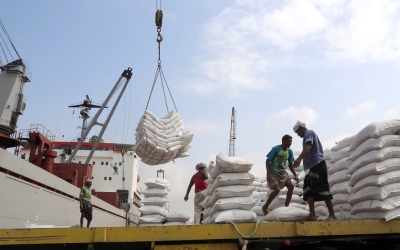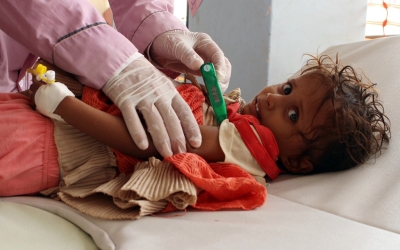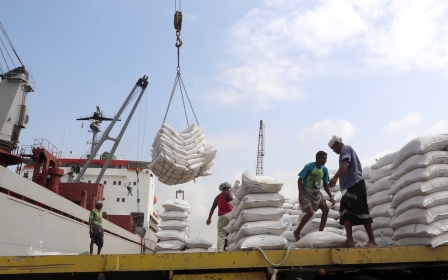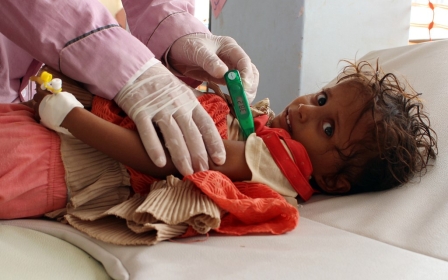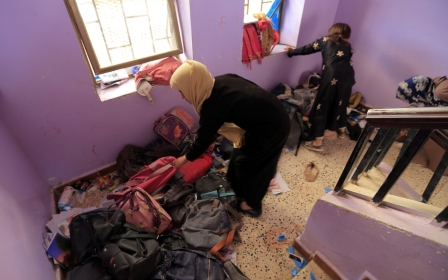UN confirms Yemen aid port withdrawals by Houthis are underway
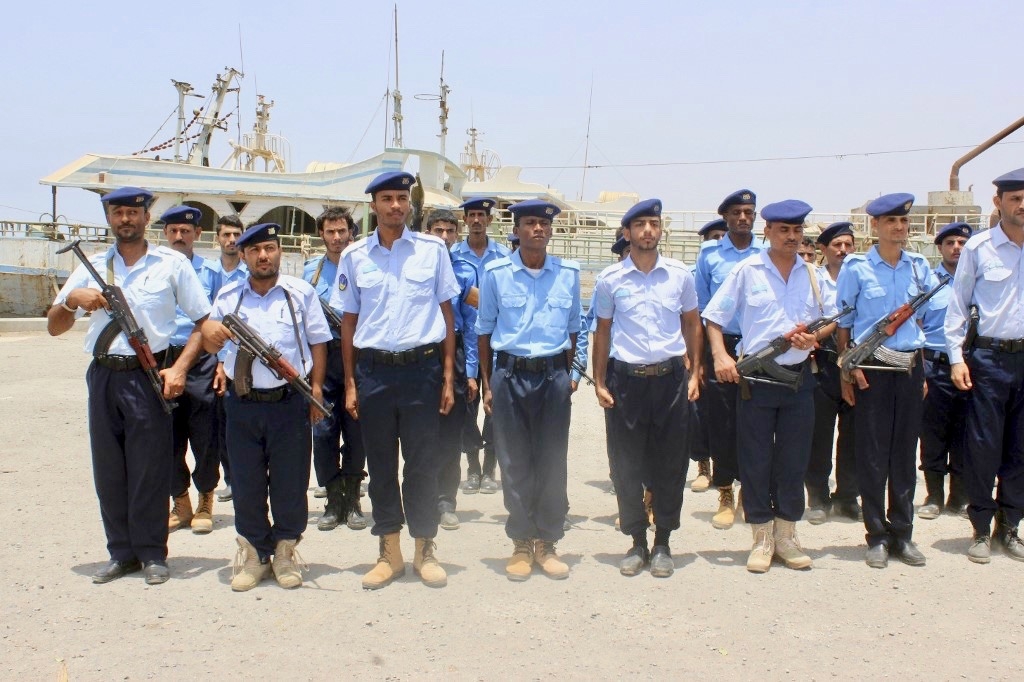
The UN confirmed that a withdrawal by Yemen's Houthi rebels from three Red Sea ports had begun on Saturday, while two pro-government officials accused the rebels of faking the pullout.
The rebel pullback is a first step in implementing a hard-won ceasefire deal reached between Yemen's internationally recognised government and the Houthi rebels late last year.
"Yes, it has begun," said UN spokesman Farhan Haq, when AFP asked whether redeployment of Houthi troops was underway. A Reuters witness also confirmed the movement.
Sources close to the Houthis said that the ports were handed over to coastguard personnel who were in charge before the rebels took over almost five years ago.
An AFP photographer at Saleef port said he saw Houthi troops leave the facility and men dressed in coastguard uniforms enter, adding that these movements were observed by the UN.
Still, the govenor of Hodeidah, Al-Hasan Taher, said the Houthis were merely reshuffling personnel.
"The Houthis are staging a new ploy by handing over the ports of Hodeida, Saleef and Ras Issa to themselves without any monitoring by the United Nations and the government side," the government-appointed official said.
Information Minister Muammar al-Iryani also told Reuters the pullout was "a flagrant show".
"It's an attempt to misinform the international community ahead of a meeting of the UN Security Council" on Yemen, he said. "A group of Houthi militiamen left and they were replaced by others wearing coastguard police uniforms."
Hodeidah port is the main entry point for the bulk of Yemen's imports and humanitarian aid, serving as a lifeline to millions of civilians pushed to the brink of famine by more than four years of war.
The UN Redeployment Coordination Committee (RCC) has said the Houthis would make an "initial unilateral redeployment" from the ports between 11 May and 14 May.
It said the redeployment would enable the UN to take a leading role in supporting the local Red Sea Ports Authority in managing the ports and enhance UN checks on cargoes. It would also allow humanitarian corridors to be reopened.
The withdrawal of rebel forces is due to be completed by Tuesday, the head of the UN redeployment committee, General Michael Lollesgaard, said in a statement.
The UN Security Council will then hear a briefing on Hodeidah on Wednesday.
The head of the rebels' Supreme Revolutionary Committee, Mohammed Ali al-Houthi, had pledged that fighters would start pulling back at 10am local time in a bid to restart the stalled ceasefire deal with the government.
He accused the government of delaying a parallel pullback from parts of the city of Hodeidah that it had pledged to make under a December truce.
"The (rebel) army and committees are withdrawing unilaterally as a result of the refusal of the countries of the US-British-Saudi-Emirati aggression and their allies to implement the accord," the rebel leader said on Twitter.
The agreement last year in Sweden was hailed as a breakthrough that offered the best chance so far of ending the war in Yemen, where a coalition led by Saudi Arabia and the United Arab Emirates is fighting on the government's side.
Although the fighting has largely stopped, there have been intermittent clashes and the promised redeployment of the warring parties away from the front lines has failed to materialise.
Nearly all goods pass through Hodeidah, and the main storage and distribution centre for imported grain lies in government-held territory on the city's outskirts.
The silos of the Red Sea Mills currently contain about 51,000 tonnes of grain - enough to feed 3.7 million people for a month - but it has gone unused since the fighting forced the UN to withdraw its staff in September.
The mills came under renewed fire on Thursday with two silos hit, one of them containing wheat, the UN said.
The coalition led by Saudi Arabia intervened in Yemen in 2015 after the Houthis ousted the internationally recognised government of President Abd-Rabbu Mansour Hadi.
Yemen's conflict has killed tens of thousands of people, many of them civilians, relief agencies say.
The fighting has triggered what the UN describes as the world's worst humanitarian crisis, with 24.1 million - more than two-thirds of the population - in need of aid.
Middle East Eye propose une couverture et une analyse indépendantes et incomparables du Moyen-Orient, de l’Afrique du Nord et d’autres régions du monde. Pour en savoir plus sur la reprise de ce contenu et les frais qui s’appliquent, veuillez remplir ce formulaire [en anglais]. Pour en savoir plus sur MEE, cliquez ici [en anglais].


